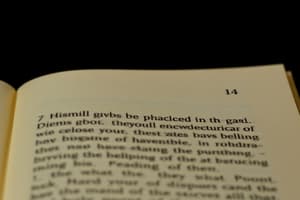Podcast
Questions and Answers
Which type of literary text aims to present a point of view and seek to convince a reader?
Which type of literary text aims to present a point of view and seek to convince a reader?
- Expository
- Persuasive (correct)
- Descriptive
- Narrative
What kind of text provides explanation of a specific topic, giving facts, reasons, explanations, or examples with supporting details?
What kind of text provides explanation of a specific topic, giving facts, reasons, explanations, or examples with supporting details?
- Expository (correct)
- Argumentative
- Narrative
- Descriptive
Which type of literary text attempts to present and explain the issue or case, gives reasons, and supports these reasons to prove its point?
Which type of literary text attempts to present and explain the issue or case, gives reasons, and supports these reasons to prove its point?
- Argumentative (correct)
- Descriptive
- Expository
- Narrative
What is the language used that is different from its literal meaning, such as metaphors and similes?
What is the language used that is different from its literal meaning, such as metaphors and similes?
Which type of literary text creates a picture of a person, place, thing, or event, and describes what something looks, sounds, smells, tastes, or feels like?
Which type of literary text creates a picture of a person, place, thing, or event, and describes what something looks, sounds, smells, tastes, or feels like?
Flashcards
Persuasive text
Persuasive text
A type of writing that aims to convince a reader to adopt a particular viewpoint or take a specific action.
Expository text
Expository text
Writing that explains a topic using facts, reasons, explanations or examples with supporting details.
Argumentative text
Argumentative text
A type of writing that presents a viewpoint, gives supporting reasons and uses evidence to prove its point.
Figurative language
Figurative language
Signup and view all the flashcards
Descriptive text
Descriptive text
Signup and view all the flashcards
Study Notes
Types of Literary Texts
-
Persuasive Text: Aims to present a point of view and convince the reader to accept that perspective. It uses emotional appeals, logical arguments, and strong evidence.
-
Expository Text: Provides explanations about a specific topic. This includes facts, reasons, and examples with supporting details. The goal is to inform or educate the reader.
-
Argumentative Text: Attempts to present and explain an issue or case. It gives reasons and uses those reasons to support its position, often including counterarguments and rebuttals.
Language in Literary Works
- Figurative Language: Refers to language that departs from its literal meaning. It includes devices such as metaphors and similes to create vivid imagery and convey deeper meanings.
Descriptive Text
- Descriptive Writing: Creates a detailed picture of a person, place, thing, or event. It employs sensory details to describe how something looks, sounds, smells, tastes, or feels, enriching the reader's experience.
Studying That Suits You
Use AI to generate personalized quizzes and flashcards to suit your learning preferences.




